The boss of one of the outdoor industry’s best known brands has warned that companies face a storm of adverse publicity over chemicals used in waterproofing clothing.
Nick Brown, founder of Nikwax, said the issue had come to the fore in Germany after Greenpeace International went gunning for big brands over their use of fluorocarbons.
The chemicals, which are also known as PFCs, have been widely used for decades to waterproof items such as jackets and trousers, used by millions of outdoor enthusiasts across the world.
But Brown warned the storm clouds Greenpeace’s campaign has generated in central Europe could head east and cast their shadow on the UK’s outdoor industry.
The Nikwax boss speaks from a safe position: his products, and the Nikwax Analogy fabric used in Páramo clothing, don’t contain PFCs, so he can afford to speak out on the matter. But most other brands outdoor clothing brands found on British High Streets do make use of the controversial chemicals.
He says the industry is looking at a sea change when it comes to waterproofs.
“It is really important to keep an eye on what is happening,” he said. “There is a frenzy of development activity going on with alternative materials, and sooner or later they will get real traction.
“For many years there has been very little real technical innovation in fabrics in the outdoor industry because of domination by big players. That is set to change.”
But he said outdoor brands should see this as an opportunity.
“Change is often hard, but it also brings opportunities. The outdoor industry as a whole will face the need to redesign with new materials, and adapt to the new requirements, perhaps bringing a new lease of life to some companies.”
So what lies behind Nick Brown’s warning? In 2012 Greenpeace launched its Chemistry for any Weather campaign, highlighting PFCs, amongst other products, as being present on outdoor clothing, and a serious source of pollution.
Brown said German public awareness is very high, stimulated by television programmes and an article in Der Spiegel, pointing out the problems with these chemicals.
Little publicity has appeared in the mainstream of specialist press in the UK, he said.
Nick Brown said: “The fuss is about public health. PFCs belong to the group of chemicals which are classified as persistent in the environment, and also bio-accumulative in humans.
“For that reason we all carry them in our blood. Where did we pick them up?
“Probably not from outdoor jackets, but more likely from the carpets in our houses, or from pizza boxes, or even if we eat a lot of sea fish.
“Will they affect us? Well, maybe, but most likely only those who are really heavily exposed, like Eskimos or Faeroe Islanders, who traditionally depend upon fish as a major proportion of their diet.
“Children in the Faeroes have been shown to have weakened immune systems, and Greenland grannies are getting breast cancer which was previously almost unknown in their communities.”
The Nikwax boss said whether you believe the risk is significant or not from a health point of view, the risk to UK Outdoor business is very real.
German companies are climbing on the bandwagon, and falling over themselves to claim that they will be ‘PFC free by 2020’, he said.
“And Germany is the largest European market. Increasingly central Europeans determine the direction that the outdoor industry takes. If UK manufacturers and designers do not switch on to the issue, they are at risk of falling even further behind and becoming more marginalised.
“I have been so impressed with the environmental awareness that has been generated in Germany. Perhaps for historical reasons, German people are very keen to do the right thing nowadays, in a way that puts many other Europeans to shame.
“The change away from polluting PFC technology will be initially driven by the German, Austrian, Swiss and Scandinavian consumers, but without a doubt, the new technologies will be taken up in the UK too.”
As well as being used to coat garments, PFCs are produced during the manufacture of some waterproof membranes, widely used in technical outdoor wear.
There has been a move in treatments from long-chain PFCs to short-chain versions, which has been portrayed as environmentally beneficial.
Grangers, a main competitor to Brown’s Nikwax company in the reproofing market, has achieved the Bluesign standard for 90 per cent of its products.
It said: “All Granger’s products are free from [perfluorooctane sulfonate] and [perfluorooctanoic acid].
“Granger’s was one of the first companies to recognise the issues with PFOS and PFOA and stopped all production using C8 chemistry back in 2007.”
C8 refers to the long-chain PFCs.
“In common with most outdoor brands we believe that C6 chemistry currently provides the best, most environmentally friendly DWR [durable water repellency] available.
“Granger’s products allow the consumer to maintain the great performance they expect from their gear, year after year, and the longer the garment stays in use, the longer it stays out of landfill.
“At Granger’s we always strive to use the ‘best available technology’. We are continually looking to develop new and innovative, environmentally responsible products that help consumers keep their products working like new.”
PFOS has been widely banned in the EU since 2006.
But Greenpeace takes issue with the use of the shorter-chain C6 chemicals. It said: “Shorter-chained alternatives are as persistent in the environment as the long-chained PFCs. Therefore, the increased global production and use of these chemicals, and their potential precursors that is currently taking place, will lead to increasing widespread environmental and human exposure that will last for the foreseeable future.”
Greenpeace also said that, because the C6 chemicals are less effective as water repellents, manufacturers may be increasing the amount they apply. In a recent test earlier this year, more clothing had traces of the shorter-chain substances compared to samples a year earlier – an indication brands are moving to these versions of waterproofing.
But it also said because C6 chemicals may be less effective in their water repellency, manufacturers may be using more to treat their garments.
The environmental campaign group also said, because of their chemical structure, C6 PFCs evaporate more easily and find their way into the environment more readily and are difficult to filter from water sources.
Patagonia, one of the brands at the forefront of environmental ethics, said: “We’ve worked with chemical companies to suggest and test improvements in the repellency and durability of both short-chain and fluorocarbon-free finishes.
“We have arranged application trials with textile manufacturers, and tested fabrics in our own lab against standard formulations.
“Over time we have seen significant improvements in performance. Some of these new finishes now meet the Patagonia standard, and we will be using them in more new products every season.”
Swedish brand Fjällräven said: “Since 2012 we have only used fluorocarbon-free impregnation in the production of our waterproof garments.
“Where accessories and equipment are concerned, we are working on doing the same and our goal is that from 2015, all Fjällräven products on the market will have fluorocarbon-free impregnation.”
But outdoor enthusiasts may need to work hard to keep the rain out in an environmentally friendly way, it said.
“As we have decided not to use this effective, yet environmentally harmful impregnation, you will need to re-impregnate your garment with a fluorocarbon-free treatment about every second time you wash it.
“So the impregnation needs to be renewed a little more often than before, but this is something that we at Fjällräven see as a reasonable compromise in exchange for avoiding spreading toxins in the environment.”
As for Nick Brown, he sees a commercial advantage in the change to more environmentally considerate waterproofs.
“Seasoned cynics will see this as yet another chance to sell something new to someone,” he said. “Well, perhaps it is, but this kind of pressure does reflect an overall awareness of things environmental which gradually grows in our country, and has gone much further in others.
“What could be better than to make the right commercial choice and also know that you are doing the right thing for the environment?”
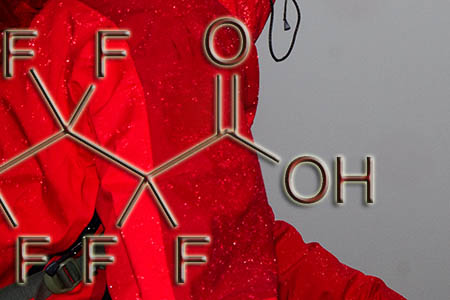
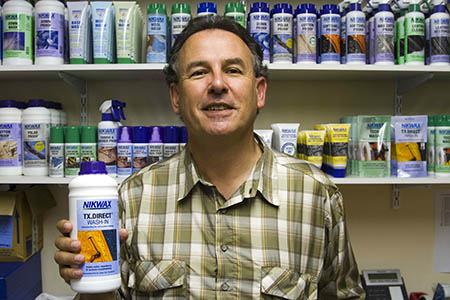
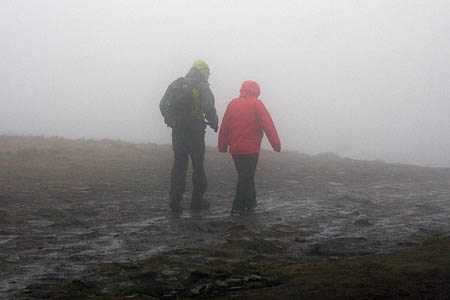
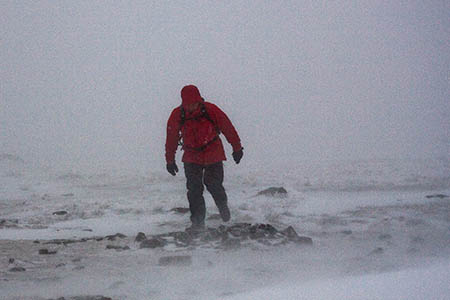

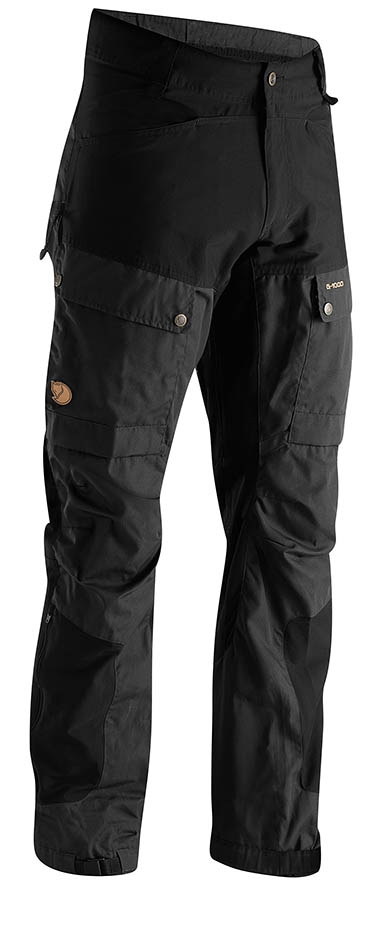
joe
19 December 2013they will go to some length to plug there own product,
probably to do with loss of profits to other clothing companys.
Bob
07 January 2014“Children in the Faeroes have been shown to have weakened immune systems, and Greenland grannies are getting breast cancer which was previously almost unknown in their communities.”
Wow, great proof that it's all down to one chemical hey?
Do a little bit of internet research and the studies behind these show that it is not all attributed to just one class of chemicals, but you'll find other widespread known pollutants such as pesticides, PCB's and a significant amount of others that have been the result of decades worth of industrial processing without the safety checks we now have in place.
How about addressing some of the largest lifestyle influencing factors first? Smoking / Car emmisions / poor diets etc..